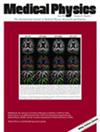Deep self-cleansing for medical image segmentation with noisy labels
Abstract
Background
Medical image segmentation plays a pivotal role in medical imaging, significantly contributing to disease diagnosis and surgical planning. Traditional segmentation methods predominantly rely on supervised deep learning, where the accuracy of manually delineated labels is crucial for model performance. However, these labels often contain noise, such as missing annotations and imprecise boundaries, which can adversely affect the network's ability to accurately model target characteristics.
Purpose
This study aims to develop a robust segmentation framework capable of mitigating the impact of noisy labels during the training phase. The proposed framework is designed to preserve clean labels while cleansing noisy ones, thereby enhancing the overall segmentation accuracy.
Methods
We introduce a deep self-cleansing segmentation framework that incorporates two key modules as follows: a Gaussian Mixture Model (GMM)-based label filtering module (LFM) and a label cleansing module (LCM). The GMM-based LFM is employed to differentiate between noisy and clean labels. Subsequently, the LCM generates pseudo low-noise labels for the identified noisy samples. These pseudo-labels, along with the preserved clean labels, are then used to supervise the network training process.
Results
The framework was evaluated on a clinical liver tumor dataset (231 CT scans) and a public cardiac diagnosis dataset (200 MRI scans). Compared to baseline methods, our approach significantly improves segmentation performance, achieving a +7.31% boost in the B-model and a +12.36% improvement in the L-model. These results demonstrate the framework's ability to effectively suppress the interference of noisy labels and enhance segmentation accuracy. The method's capability to distinguish and cleanse noisy labels ensures more precise modeling of target structures, improving the robustness of the segmentation process.
Conclusions
The proposed deep self-cleansing segmentation framework offers a promising solution to the challenge of noisy labels in medical image segmentation. By integrating a GMM-based LFM and an LCM, the framework effectively preserves clean labels and generates pseudo low-noise labels, thereby improving the overall segmentation accuracy. The successful validation on both clinical and public datasets underscores the potential of this approach to enhance disease diagnosis and surgical planning in medical imaging.



 求助内容:
求助内容: 应助结果提醒方式:
应助结果提醒方式:


